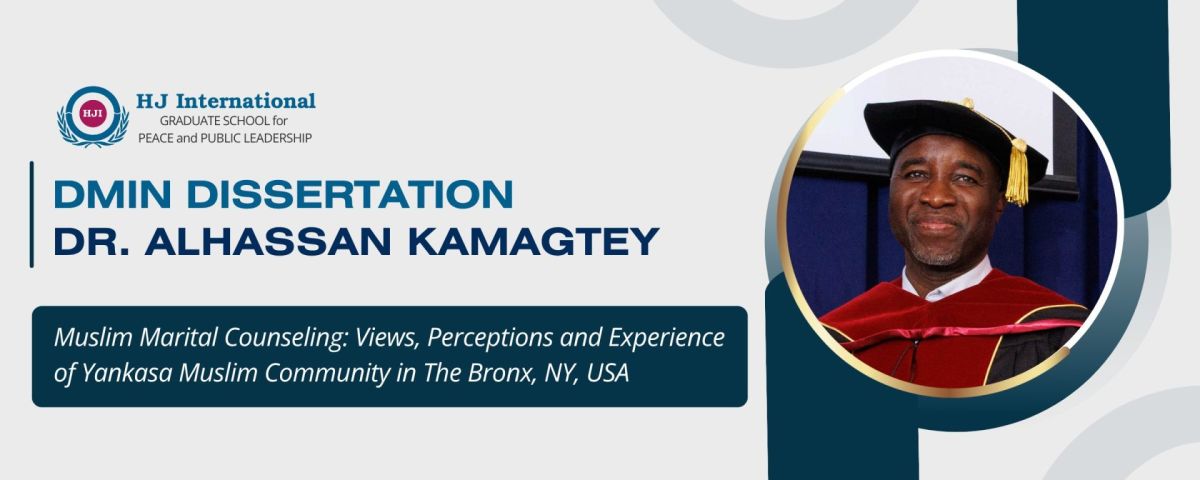Muslim Marital Counseling: Views, Perceptions, and Experiences of Yankasa Muslim Community in the Bronx, NY, USA

Doctoral Dissertation Project by Alhassan Abubakari Kamagtey | a.kamagtey@hji.edu, gawsuzaman@gmail.com, Alhassan.kamagtey@wmchealth.org
My dissertation focused on the role of marital counseling in enhancing the quality of marital relationships among married couples within the Yankasa Muslim Community, located in the Bronx, New York, USA. The central objective of the research was to investigate how members of this immigrant Muslim community view, understand, and experience Islamic marital counseling, especially in the context of its relevance and impact on marital stability and overall relationship satisfaction.
To achieve this objective, the study utilized a mixed-method research design, which integrated both quantitative and qualitative approaches. This methodological combination allowed for a comprehensive understanding of the topic by capturing statistical trends as well as deeper, personal insights. For the qualitative component, I conducted semi-structured interviews featuring open-ended questions. This flexible interview format enabled participants to share their thoughts freely while allowing for follow-up questions that further clarified their responses. The qualitative data collected from these interviews were systematically analyzed using Colaizzi’s seven-step method. This rigorous method of thematic analysis helped identify recurring patterns and meaningful themes across participant responses.
Five major themes emerged from the qualitative data:
1. Prior Experience with Islamic Marital Counseling: This theme addressed whether and how participants had previously engaged in any form of marital counseling rooted in Islamic principles.
2. Perceptions of What Constitutes Marital Counseling: Here, participants discussed their understanding of marital counseling, distinguishing between informal religious advice and structured counseling.
3. Timing of Marital Counseling Interventions: This theme explored whether counseling was sought before or after marital issues became serious, highlighting a tendency to seek help only at crisis points.
4. Accessibility of Marital Counseling: This reflected participants’ concerns about the availability and affordability of counseling services that are culturally and religiously appropriate.
5. Perceived Benefits of Marital Counseling: Participants emphasized how such services could improve communication, mutual respect, and conflict resolution in their marriages.
In the quantitative phase of the study, data were gathered through structured questionnaires distributed among community members. These instruments helped capture measurable opinions and demographic trends related to marital counseling practices and attitudes.
The overall findings of the study suggest that Islamic marital counseling can play a significant role in strengthening relationships within the Yankasa Muslim community. Counseling was perceived not only as a tool for resolving marital conflict but also as a preventive measure that could foster mutual understanding and respect between spouses. Importantly, the research also revealed that negative cultural perceptions often act as barriers to seeking marital counseling. However, by increasing awareness and education about the benefits of Islamic marital counseling, these cultural barriers can be addressed and potentially overcome.
In conclusion, the study provides valuable insights that can inform the development of culturally and religiously sensitive marital counseling programs tailored to the needs of African Muslim immigrant communities. It also highlights the need for further community education and advocacy to normalize counseling as a positive and faith-aligned resource for marital wellbeing.





